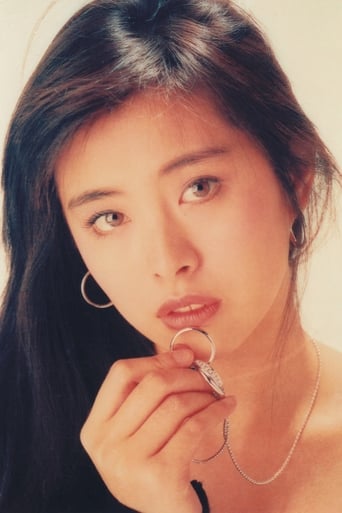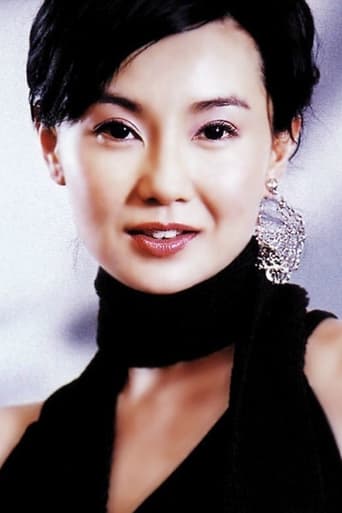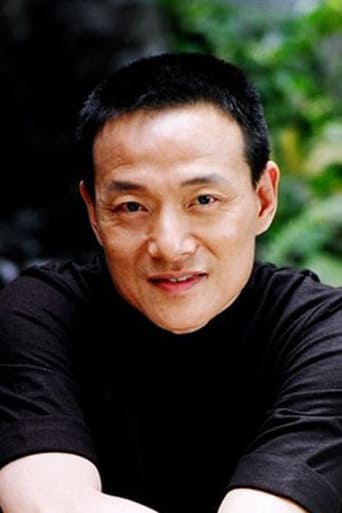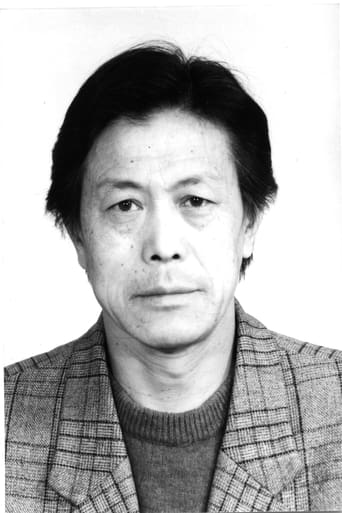Actuakers
One of my all time favorites.
Lollivan
It's the kind of movie you'll want to see a second time with someone who hasn't seen it yet, to remember what it was like to watch it for the first time.
Neive Bellamy
Excellent and certainly provocative... If nothing else, the film is a real conversation starter.
Philippa
All of these films share one commonality, that being a kind of emotional center that humanizes a cast of monsters.
Chao Anya
The movie was a big hit when I was a little girl. At that time, I was more into the love story, however when I watched Ching Se (Green Snake) again, something suddenly struck me and finally, I get a glimpse of the true meaning of the film.As some may have already knew, the story was adapted from ancient Chinese mythology. The original story was about love and humanity: the monk Fahai did not understand love, he believed that all monsters are born to be evil and broke up the couple of the white snake and the man. The movie was quite different though, as the true love couple in this film was meant to be the white snake and the green snake.The green snake (Qing),as can be seen from the tile of the film, is the main character. She went all the way trying to find what love and human emotions are, and to no avail. When the white snake (Bai) fell in love with the human (Xian Xu), Qing copied Bai's moves and try to seduce Xian Xu. Bai has known Qing for a very long time, therefore she knew that Qing is doing this only to test if Bai cares about her. Qing's jealousy was forgiven, but Bai suggest that Qing go back into the forest because she was carrying the man's baby at that time. Fahai found Xian Xu and insisted that he was blinded by his desire, lost morality and that he should go to be a monk, throwing away all the emotions and reaching a new level of understanding to the world. Qing and Bai went to save Xian Xu and were engaged in a fight with Fahai, using their magic they brought flood to the Jinshan temple. In the middle of the fight, Bai gave birth to her baby, indicating that she was already a human and no longer a snake. Fahai was shocked by the fact that all this time he has been battling with a human, and to save them he drove the flood to another way, but killed dozens of monks in Jinshan temple accidentally. Bai asked Qing to save her husband, she pleaded and it broke Qing's heart. The best line of the movie lies here, Qing said:"You always talk about love and being human, but what is love? I don't even think the human understands. You and me, we sisters have been together for 500 years, isn't this love between us? Have you ever thought about me as a human and consider my emotions?" Qing went to save Xian Xu, only to find that the man has agreed to become a emotionless monk in order to stop Fahai from hurting the snakes. She laughed and said Xu betrayed Bai's love, and he was not worth it. She brought Xu outside, but at that time Bai has already gone. Now heartbroken, Qing killed Xu for the purpose of him accompany Bai in the other world and finish her last wishes. She was in such grief that she was about to kill herself; but then she remembered that she had no right to -- she was not the one Bai loved.Fahai was going to punish Qing for murdering, but Qing just laughed and asked if he made no mistake. At the beginning of the story, Fahai was seduced by Qing to test if he was really noble and has no desire (there were metaphor and symbolic techniques used, but the director was meant to say that they had already have sex therefore the monk has sin). It is true, as Fahai hurt a human pregnant woman (Bai) and killed several monks by accidents and he is evil too. Qing was dead inside, she left and said she will come back if the human really has the answer to "What is love".Like any other Chinese film (especially mythology and tales), the story was told in a indirect way and many symbolic clips were used. The atmosphere and use of light, smoke and color are amazing, there are novel with same title and it was even darker than the movie. The ancient Chinese mythology is not like those in any other countries, but they too talk about humanity and the never ending topic of love. This is a masterpiece and is really worth watching.
Andrea Vidusso
Two snakes that evolved into women, a tibetan priest, a teacher of poetry and a wonderful frame made up of peach blossom petals, lotus flowers and lanterns lit at night on the river are the ingredients that make "Green Snake" a dream-like movie. The story, slow compared to Tsui Hark standards, flows through two paths: on the first one (lighthearted, playful and with a touch of irony which is never unwelcome) we get to enjoy the life of two snake-girls (White Snake, played by Joey Wang, and Green Snake, played by Maggie cheung) who, by stumbling into a village and alluring every one, cause a lot of turmoil among the people's hearts. White Snake, having trained much more than Green Snake and thus having acquired human feelings, actually succeeds in winning the love of the poetry teacher. On another scenario, the tibetan priest lives in a nearby temple, meditating, trying to gain spiritual ascension, helping people whenever they are in trouble and in general doing his best to preserve the natural balance of the world. However, not everything is like it seems at first glance: while the two snake-girls actually show some positive will and determination as they tend sick people, the priest, although he stops tidal waves from flooding the village, never goes down to experiencing the condition of people... and, by acting as judge, risks of falling into the trap of self-esteem and prejudice. Apart from the thoughtfulness it inspires, the movie is unique in fantasy and never ceases to wonder, regardless if it's autumn, winter or spring! 10/10
curtpdx
...and this one's very good. It's a retelling of the Chinese legend Madam White Snake, and while some of the effects aren't what a big-budget film would allow, Cheung and Wang convey a sexiness in their roles that make it highly entertaining.Shaw Brothers made a version of the story titled Madam White Snake in the 60's or 70's. In 2001, there was a very lengthy Taiwan-produced TV series of the same name. So far as I know, neither of these are out on DVD.
wobelix
Hong Kong cinema never shies away for some over the top story-telling, but when dealing with a lush fairy tale like this Green Snake, and having added a pinch of tongue-in-cheek like Tsui Hark did here, without slacking in the camera- and special effects-departments, it is an exciting, mesmerizing experience ! What a wonderful and loveable movie !






